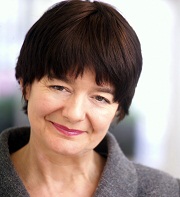Kama Melly QC – Park Square Barristers, Leeds
 Kama Melly was one of this year’s 107 new Queen’s Counsel; one of just 25 women (of 48 who applied) appointed silks in the 2015/16 Competition. I met Kama in The Savoy Hotel, London the day after her oath-taking as a new silk at Westminster Hall. She had popped down for a few days from Leeds with her husband and children to make a few days out for this very special occasion. As Kama said, “staying in the Travelodge would not have been quite the same!”
Kama Melly was one of this year’s 107 new Queen’s Counsel; one of just 25 women (of 48 who applied) appointed silks in the 2015/16 Competition. I met Kama in The Savoy Hotel, London the day after her oath-taking as a new silk at Westminster Hall. She had popped down for a few days from Leeds with her husband and children to make a few days out for this very special occasion. As Kama said, “staying in the Travelodge would not have been quite the same!”
Kama is widely recognised as one of the foremost advocates in the North East, specialising in Criminal Law for the past 10 years. She is in demand for serious heavyweight crime including the gravest sexual offences as well as drug conspiracies and murder. She specialises in cases involving child exploitation and child defendants as young as ten. One of her strengths and evident source of great personal satisfaction is her ability to get on with people from all walks of life, from young defendants from troubled backgrounds to senior judges.
Many members of Kama’s extended family, as well as her friends, joined Kama the day before for the silk ceremony. Kama said that her mum and dad had already been immensely proud of her when she had been called to the Bar in 1997, so to be made a silk by The Queen – and on her first attempt – was just “the cherry on the top” for her mum.
Kama said that although she had faced challenges at the Bar from being a woman of mixed heritage, she had encountered bigger hurdles due to her working class background, including financial ones. Kama had lived in a squat for the first seven years of her life, raised by her single parent mother. She had dropped out of State Further Education College at age 16 and had later studied for ‘A’ levels at night school having moved out of home, whilst managing a skateboard shop. After taking a law degree, Kama had been assisted at Bar School with a Harmsworth and Benefactors Scholarship at Middle Temple, living in the Scholarship House.
The QC Selection Panel looks for evidence of commitment to and proactivity in diversity (one of the five competencies in which applicants have to demonstrate excellence). Kama evidently convinced the Panel on diversity issues, demonstrating that she put her beliefs into action, through for example her work on numerous Bar committees such as those on race issues and youth justice. Kama said that it was incumbent upon members of the profession, particularly at senior levels, to show the way on diversity though understanding, commitment and action. Silks had to “set the tone” in the robing room in the treatment of BAME and female colleagues.
Kama said she had chosen to specialise in criminal law because the work involved “very interesting law with real issues, emotions and desires.” She liked working with people who had “not chosen to be involved in the justice system”. She had moved into specialising in serious sexual and violent crimes after she had felt that she needed new challenges, wishing to “apply law in new factual scenarios”. Kama said that she had not particularly expected to return to Leeds – where she had attended university – but when the opportunity arose there for a pupillage she had not hesitated in going.
Kama had built her practice and family life In Leeds (her husband is a barrister in the same chambers). She volunteered that it was probably very unusual for a barrister to have worked so much in just one court, as she had in Leeds Crown Court, but doing so had allowed her to balance work and family life. She expected that would change in future as a Queen’s Counsel. One of the differences on the personal front between being a senior junior and a new QC would be in having to spend a little more time away from her family as she built up her silk practice. However, to balance that, Kama hoped that she would be able to get a little more time off between cases. Being a senior-junior aspiring to silk had been “full on”. Kama had in the past managed to balance home life and work priorities by being “pretty relentless” and “never allowing any dead time”. She said that supporting her family was core to her, and that their support for her was equally crucial. Kama always had her laptop with her, putting in a half hour’s work here and there, for example as she waited for one of children in the car after one of their sporting activities. As if she was not busy enough already, Kama “volunteered for things” – she had also been proud to accept the position of Chair of the Bar Conference in 2015 – because “you can’t criticise the way things are, if you are not prepared to get involved.” She was, she admitted, a “chronic participator”.
Kama said that it was important that she had had the cases of sufficient substance during the previous two years to demonstrate excellence before she could apply for silk. Having got these, she had also felt that “the time was right” to apply in 2015. She recommended to anyone contemplating applying for Queen’s Counsel to begin preparing for the time-consuming and sometimes stressful process some years in advance. They might do so, for example, by having a copy of the latest QC application form on their laptops, so that they could familiarise themselves with it when they had a few minutes to spare. Kama had also found it very helpful to go through her diaries, so that when she came to completing the form she had a ‘prompt’ to recall of the cases.
It was a matter of “solid preparation” for the competition, and there were no short cuts. She had received valuable advice and support from senior colleagues. She got some professional help with competency-based interview techniques and preparation, but nothing beyond that.
Kama found the evidence-based competition to be fair and transparent. It was “obviously the right way to select silks”, she said. Her preparation for interview had included being ready to talk about cases that she had undertaken since she had submitted her application form, in relation to each of the competencies in all their aspects. She also, for example, researched the (then) new Supreme Court ruling on joint enterprise, which she felt she might crop up. And it did.
Overall, Kama said she found the Queen’s Counsel competition process an arduous but “pleasant” one.
© Queen’s Counsel Appointments Ltd
- Date: March 25, 2019
- Category: QCA Profiles 2016


